Search
Search Results
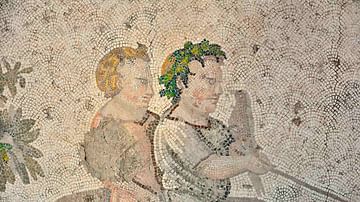
Article
The Great Palace of Constantinople
The Great Palace of Constantinople was the magnificent residence of Byzantine emperors and their court officials which included a golden throne room with wondrous mechanical devices, reception halls, chapels, treasury, and gardens. In use...
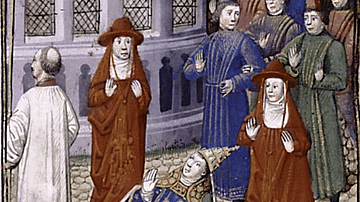
Image
Pope Joan Giving Birth
A c. 1450 illustration showing Pope Joan giving birth during a procession. Pope Joan was a legendary female pope of the Middle Ages said to have reigned from 855 to 858. Her existence is disputed. (Spencer Collection)
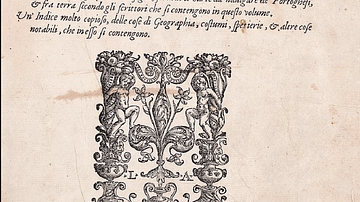
Image
The History and Description of Africa by Leo Africanus
An early title page from The History and Description of Africa by Leo Africanus (1485-1554), first published in 1526.
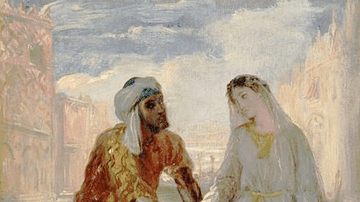
Image
Leo Africanus as Shakespeare's Othello
Many scholars, without concrete evidence, believe that Leo Africanus 1485-1554 was the inspiration behind William Shakespeare’s Othello, shown here with Desdemona in an 1849 painting by Théodore Chassériau, currently in the Louvre Museum...
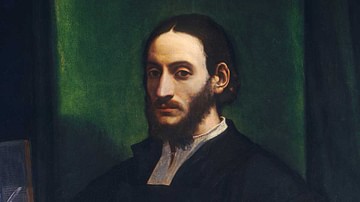
Image
Portrait of a Humanist: Leo Africanus
Portrait of a Humanist by Sebastiano del Piombo c. 1520. The identity of the person is unknown. Dietrich Rauchenberger has suggested that the painting may depict Leo Africanus (1485-1554).

Image
Leo Lesquereux
Leo Lesquereux, 19th-century paleobotanist, image by an unknown artist, published in Popular Science Monthly April 1887.
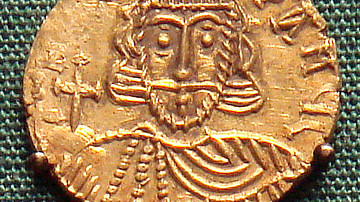
Image
Leo III
A gold nomisma coin depicting Byzantine emperor Leo III (r. 717-741 CE). (British Museum, London)
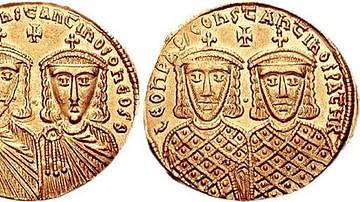
Image
Leo IV & Constantine VI
A gold coin depicting Byzantine emperor Leo IV (r. 775-780 CE) on the right and his son and successor Constantine VI (r. 780-797 CE) on the left. (Classical Numismatic Group, Inc. http://www.cngcoins.com)
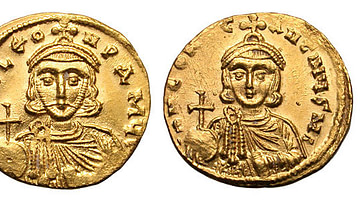
Image
Leo III & Constantine V
A gold solidus coin depicting Constantine V, emperor of the Byzantine empire between 741 and 775 CE (right) and Leo III (r. 685-741 CE)
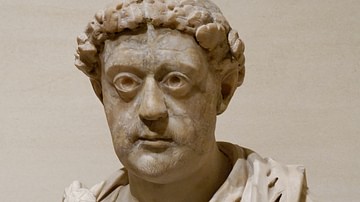
Image
Leo I
A portrait bust of Byzantine emperor Leo I (r. 457-474 CE). (Louvre Museum, Paris)